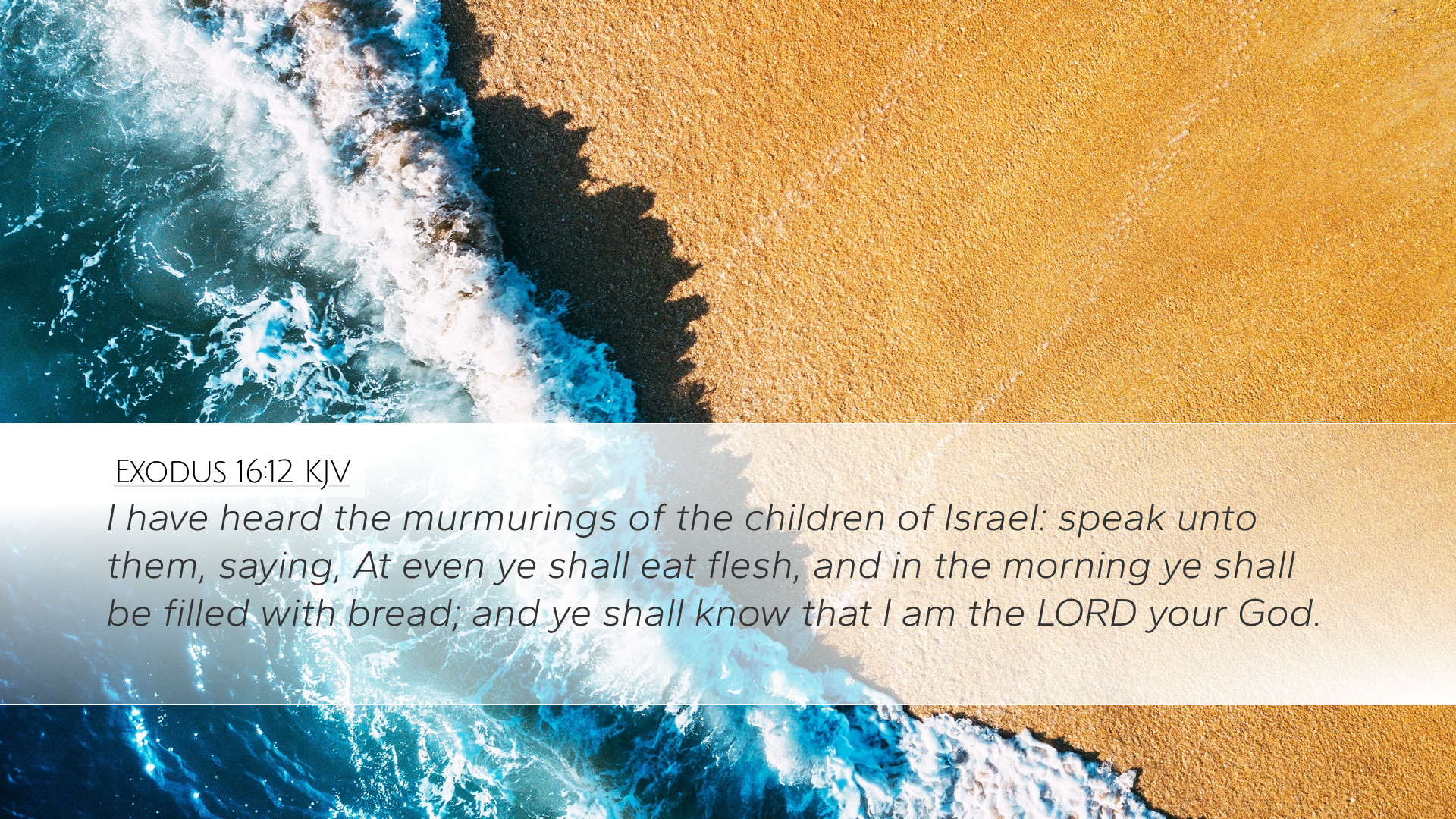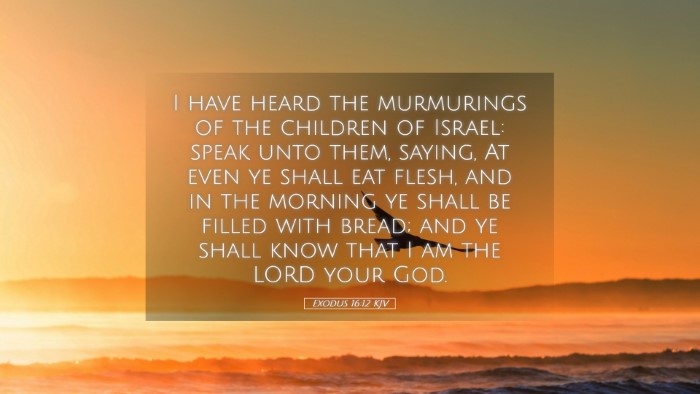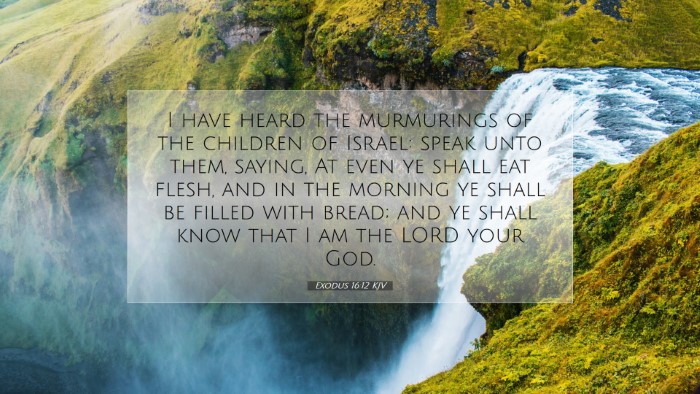Exodus 16:12 - Commentary Summary
Bible Verse: "I have heard the grumblings of the sons of Israel; speak to them, saying, ‘At twilight you shall eat meat, and in the morning you shall be filled with bread; and you shall know that I am the Lord your God.’” (Exodus 16:12, NASB)
Contextual Overview
Exodus 16 details a pivotal moment in the journey of the Israelites through the wilderness after their escape from Egypt. Much of their experience in the desert was marked by complaints about their sustenance. This verse occurs as God responds to their grumbling by promising to provide for their needs, emphasizing the relationship between divine provision and the acknowledgment of God's sovereignty.
Theological Insights
- God as Provider: This verse illustrates God's role as a provider, a theme recurrent throughout the Scriptures. He listens to the complaints of the Israelites, indicating that He is personable and aware of their struggles.
- The Test of Faith: The promise of food at twilight denotes an invitation to trust God. His assurance helps the Israelites to see His faithful character amidst their doubts.
- Understanding Grumbling: The term "grumblings" suggests a deeper human inclination towards discontent. The Lord hears such complaints, not with anger, but with a desire to bring them into a fuller understanding of His grace.
Insights from Public Domain Commentaries
Matthew Henry
Henry emphasizes that God’s hearing of the Israelites' grumblings reflects His profound patience and mercy. He points out that instead of punishing them for their complaints, God responds with compassion, demonstrating that He wishes to alleviate their distress.
Henry notes, “He does not grant their cry for flesh with a heavy hand, but instead, He promises both meat and bread.” This highlights God’s abundant care, showcasing His authority over creation by sending quail in the evening and providing manna in the morning. Henry encourages believers to move from complaint to reliance on God.
Albert Barnes
Barnes offers a detailed perspective on the significance of evening and morning. He suggests that the specifics of the timing reflect a structured provision, symbolizing God’s order amidst chaos. The transition from twilight to morning connotates continuity in God’s mercies, reinforcing the promise of daily reliance on Him.
In Barnes’ evaluation, the provision of quail represents not only God’s ability to provide but also serves as a call for the Israelites to remember His previous miracles during their exodus from Egypt. He asserts, “This promise acts as a dual reminder of past deliverance and future care.”
Adam Clarke
Clarke takes a didactic approach to this passage, emphasizing the pedagogical aspect of God’s provision. He states, “This situation was a teaching moment for the people, aimed at leading them towards spiritual maturity.” The provision of food is not merely physical sustenance but a lesson about reliance on divine providence.
Clarke also notes the phrase “you shall know that I am the Lord your God,” as critical in the theological context. This knowledge is transformative; it transitions from a mere acknowledgment of God’s existence to a personal understanding of His active role in the Israelites' lives. He affirms that experiencing God's provision leads to a deeper faith and trust in God’s goodness.
Practical Applications for Today
- Recognizing God’s Provision: Believers are called to be aware of how God provides for their needs, both materially and spiritually, encouraging gratitude and contentment.
- Responding to Complaints: Instead of harboring discontent, individuals are invited to express their grievances before God as a step towards acknowledgment and submission.
- Growing in Faith: This verse serves as a reminder that faith involves recognizing God's hand in daily provisions and trusting that He knows what is best for us.
- Connecting Past and Present: Just as God reminded the Israelites of His past provisions, Christians today should reflect on their personal histories of God’s faithfulness to bolster their current faith.
Concluding Thoughts
Exodus 16:12 stands as a pivotal verse that captures God’s faithful response to human need. Through divine provision, we are reminded of God’s unchanging character and His deep desire for us to recognize Him as our God. This text invites believers, pastors, and scholars alike to meditate on the nature of divine sustenance and the importance of responding in faith.


